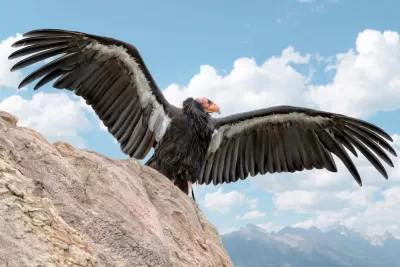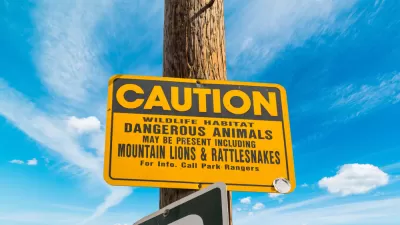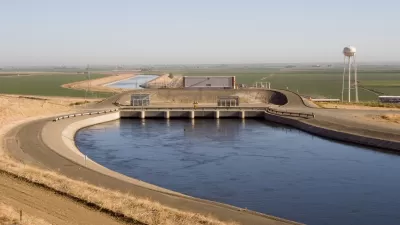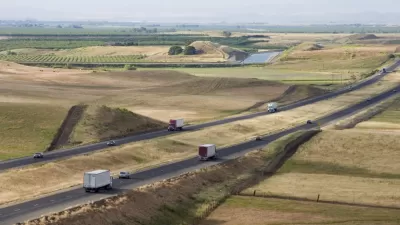A bill set to pass in the U.S. Senate would inject billions into wildlife conservation and species restoration efforts.

A proposed bill could be “the biggest piece of legislation for wildlife since the Endangered Species Act of 1973,” writes Benji Jones in Vox. The Recovering America’s Wildlife Act (RAWA) “passed the House in June on a bipartisan vote, and it’s poised to clear the Senate, where it has 16 Republican co-sponsors, as soon as this fall.”
According to Jones, “Roughly 80 percent of funding for state-led conservation comes from selling hunting and fishing licenses, in addition to federal excise taxes on related gear, such as guns and ammo. But these activities aren’t as popular as they once were.” The new injection of funds could help state agencies beef up their efforts. “The idea is that these funds would pay for 75 percent of each state’s Wildlife Action Plan. These are formal blueprints, drafted by each state in 2005, that detail which species are vulnerable and how the agency plans to keep them off the federal endangered species list.” But, Jones notes, states currently only have the funds for about 5 percent of their plans’ projects.
Unlike many current state initiatives, the bill also covers non-game species, which are often left out by state policies that focus resources on economically valuable species. Jones adds, “RAWA also includes nearly $100 million for the nation’s Native American tribes, which own or help manage nearly 140 million acres of land in the US (equal to about 7 percent of the continental US).”
Observers expect the bill to pass when it comes to a vote as early as September.
FULL STORY: The biggest wildlife bill since the Endangered Species Act is *this close* to becoming law

Alabama: Trump Terminates Settlements for Black Communities Harmed By Raw Sewage
Trump deemed the landmark civil rights agreement “illegal DEI and environmental justice policy.”

Study: Maui’s Plan to Convert Vacation Rentals to Long-Term Housing Could Cause Nearly $1 Billion Economic Loss
The plan would reduce visitor accommodation by 25% resulting in 1,900 jobs lost.

Planetizen Federal Action Tracker
A weekly monitor of how Trump’s orders and actions are impacting planners and planning in America.

Waymo Gets Permission to Map SF’s Market Street
If allowed to operate on the traffic-restricted street, Waymo’s autonomous taxis would have a leg up over ride-hailing competitors — and counter the city’s efforts to grow bike and pedestrian on the thoroughfare.

Parklet Symposium Highlights the Success of Shared Spaces
Parklets got a boost during the Covid-19 pandemic, when the concept was translated to outdoor dining programs that offered restaurants a lifeline during the shutdown.

Federal Homelessness Agency Places Entire Staff on Leave
The U.S. Interagency Council on Homelessness is the only federal agency dedicated to preventing and ending homelessness.
Urban Design for Planners 1: Software Tools
This six-course series explores essential urban design concepts using open source software and equips planners with the tools they need to participate fully in the urban design process.
Planning for Universal Design
Learn the tools for implementing Universal Design in planning regulations.
Caltrans
Smith Gee Studio
Institute for Housing and Urban Development Studies (IHS)
City of Grandview
Harvard GSD Executive Education
Toledo-Lucas County Plan Commissions
Salt Lake City
NYU Wagner Graduate School of Public Service





























